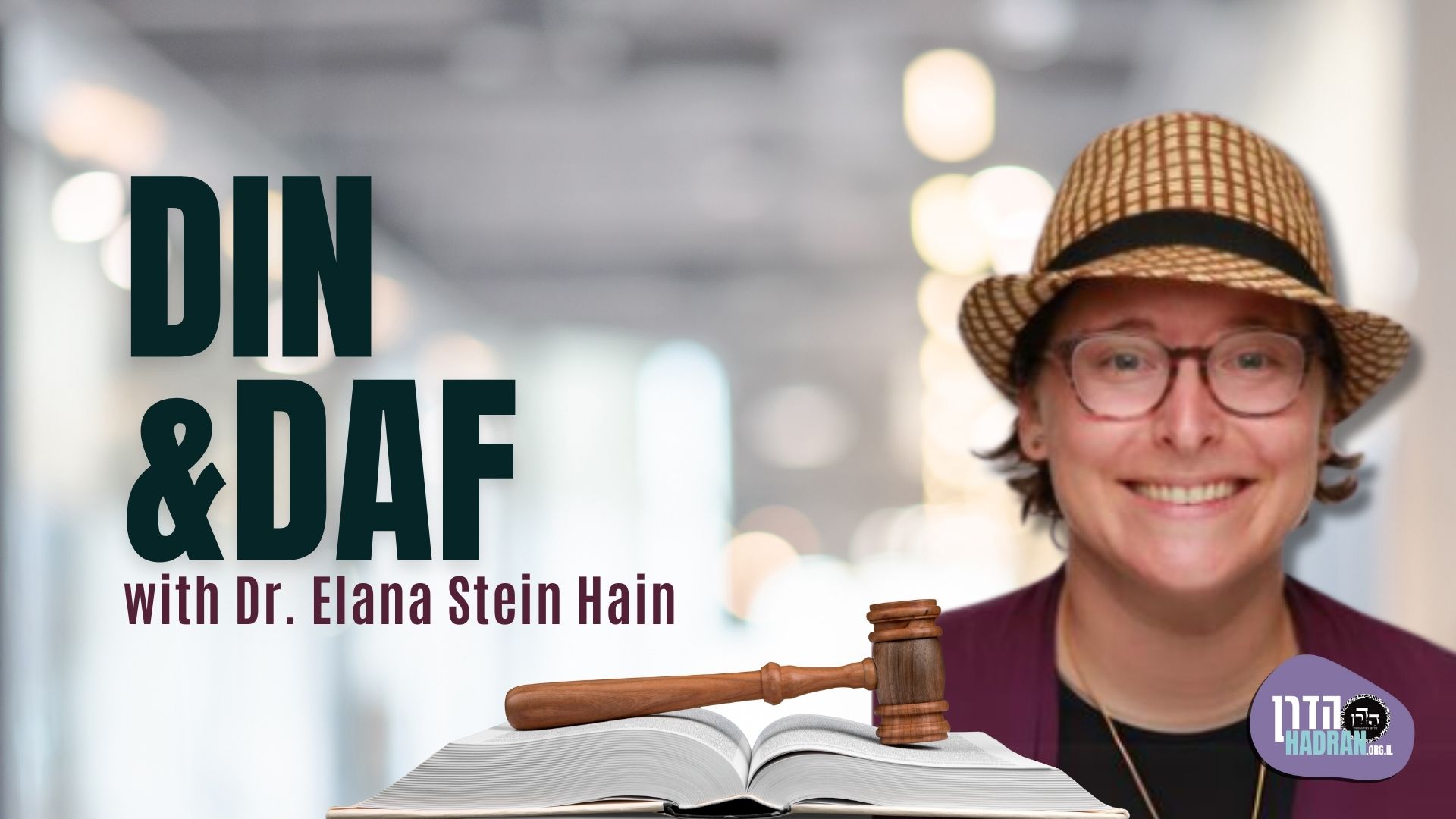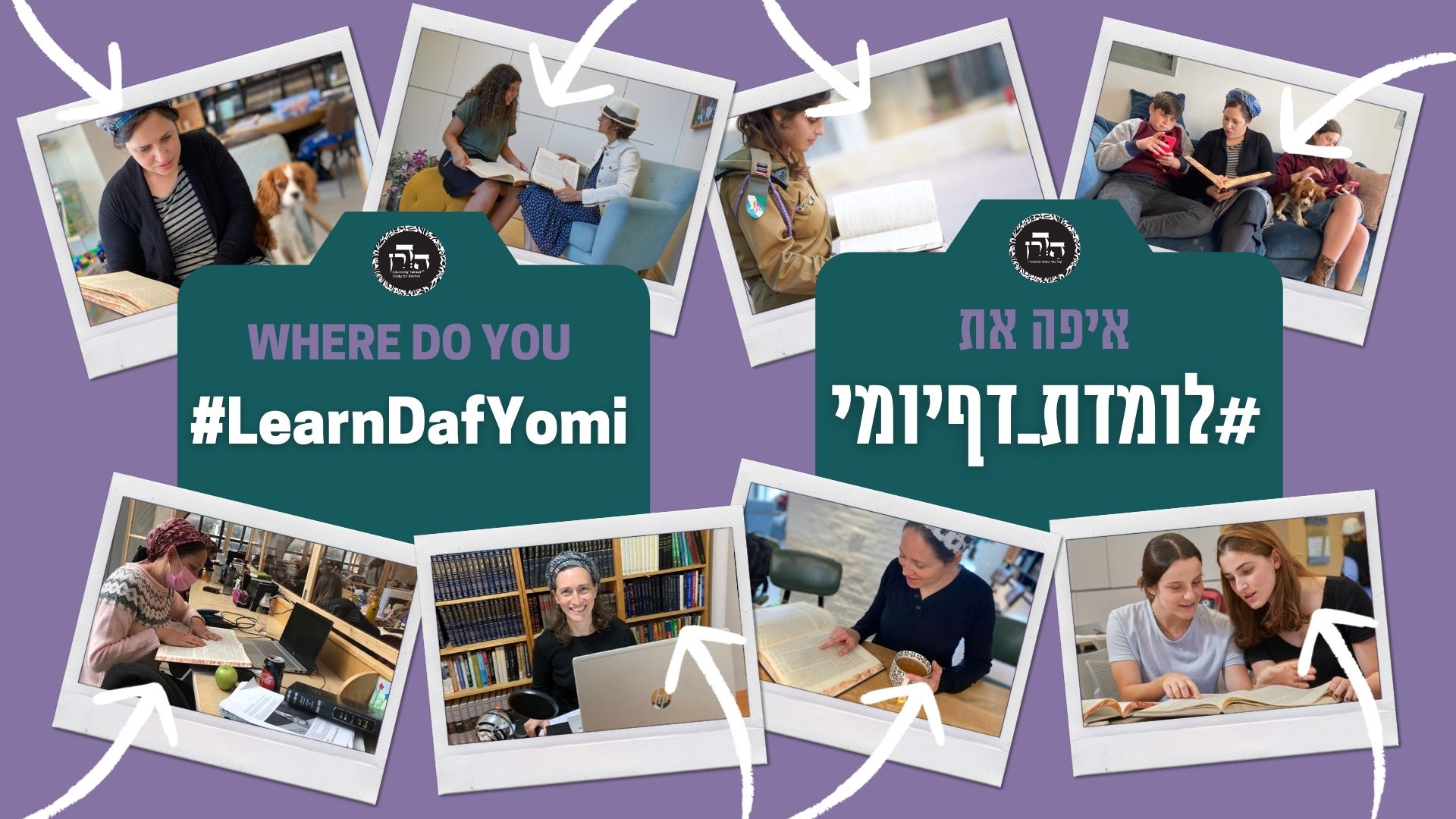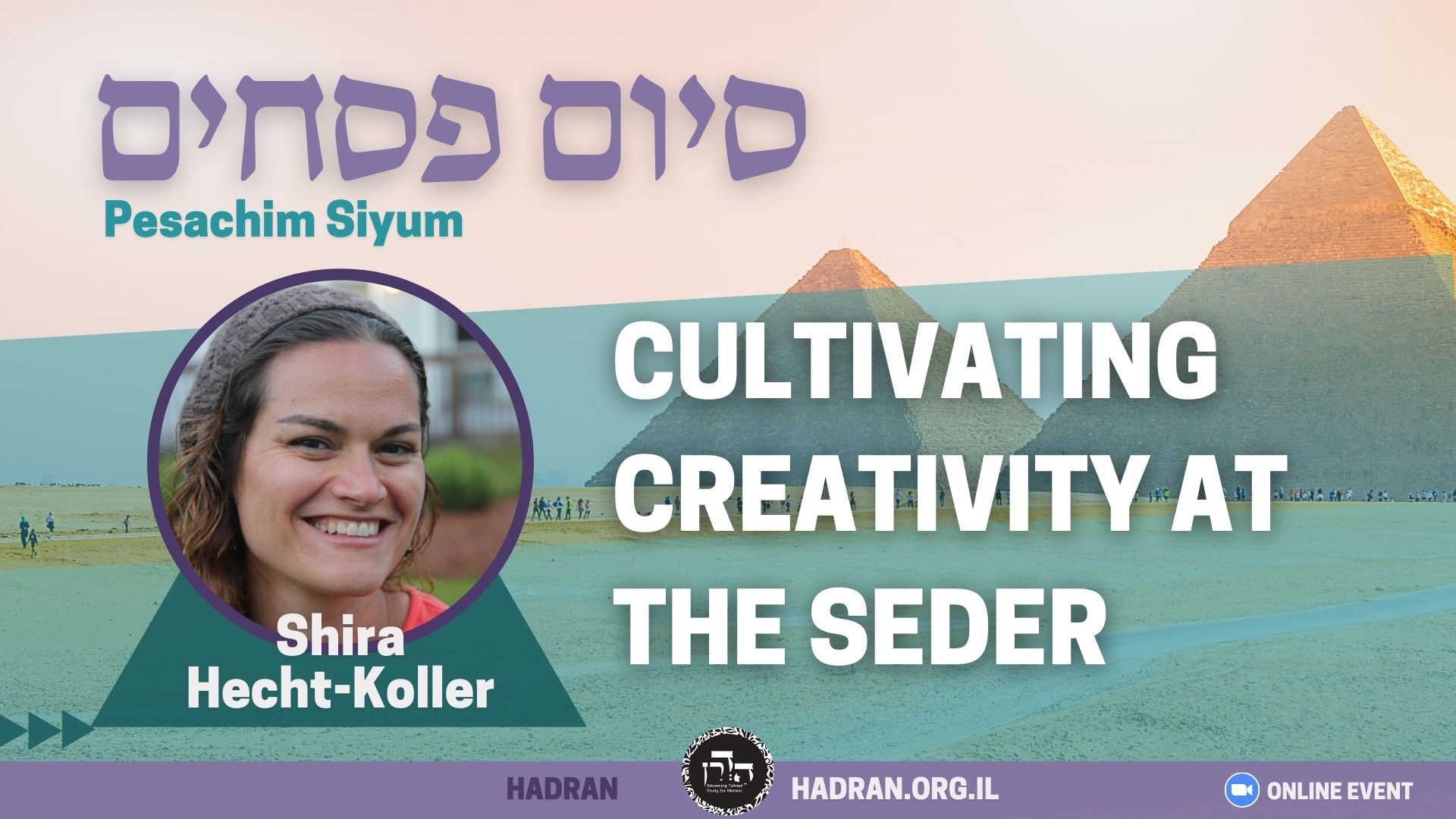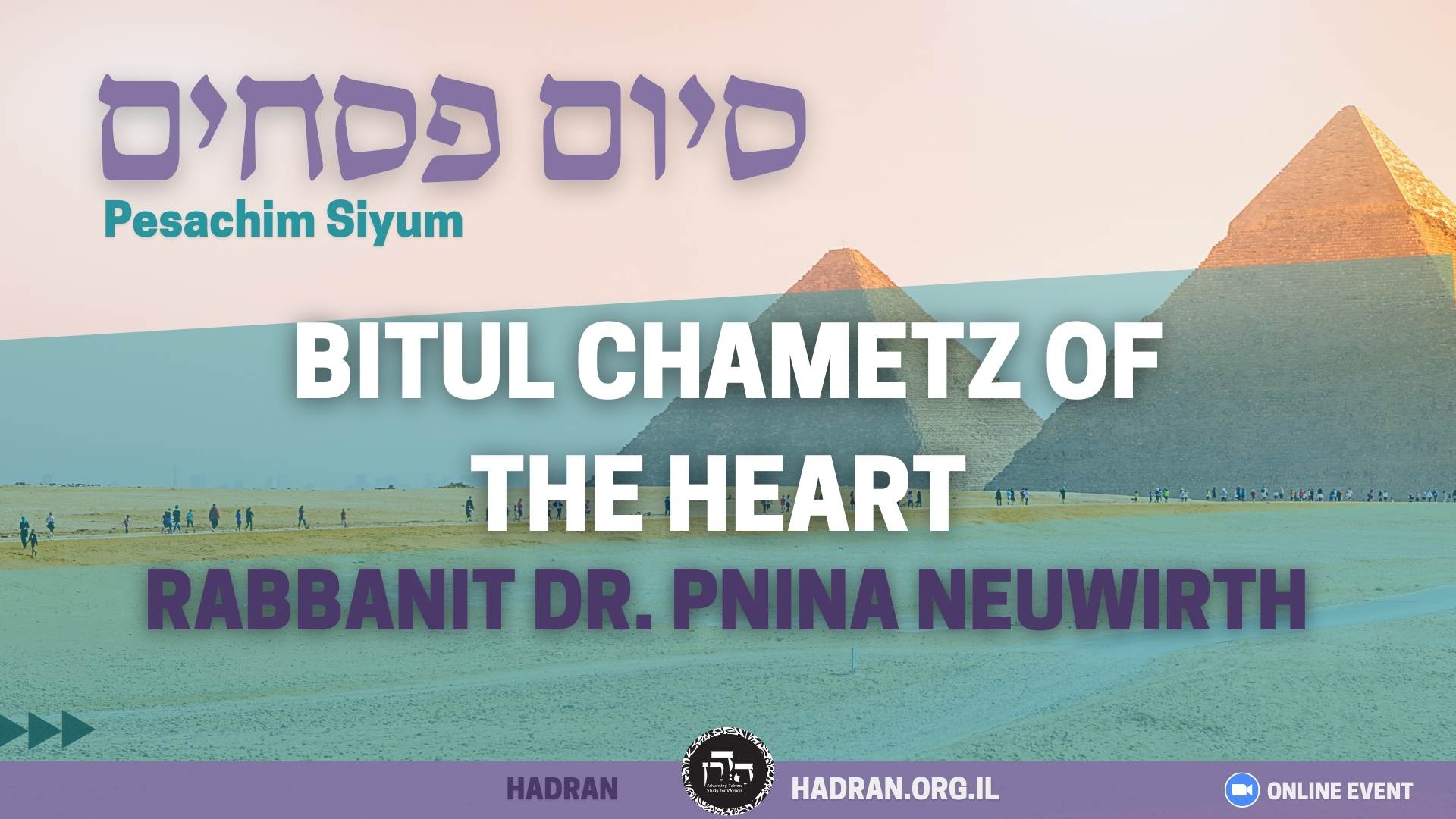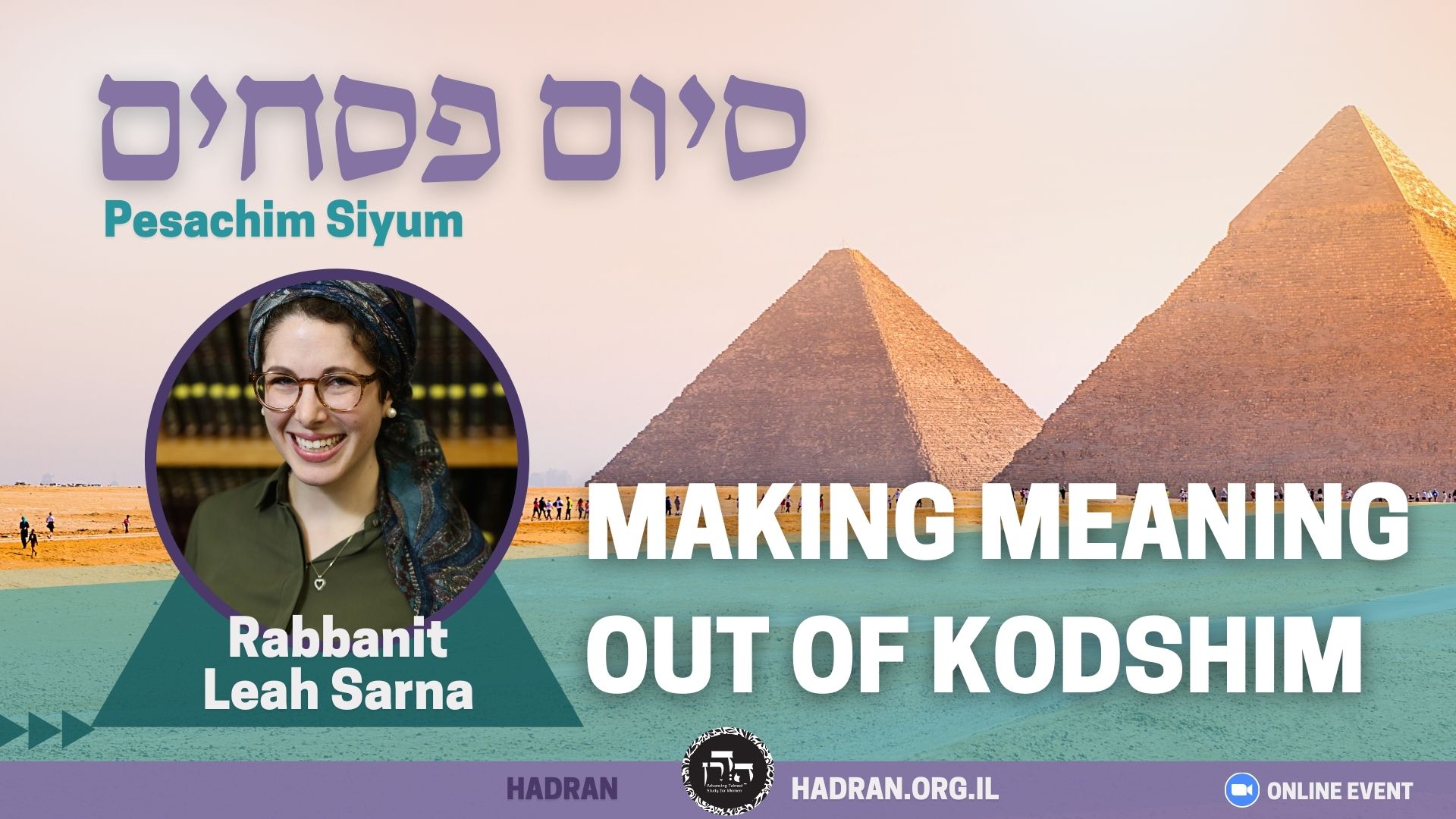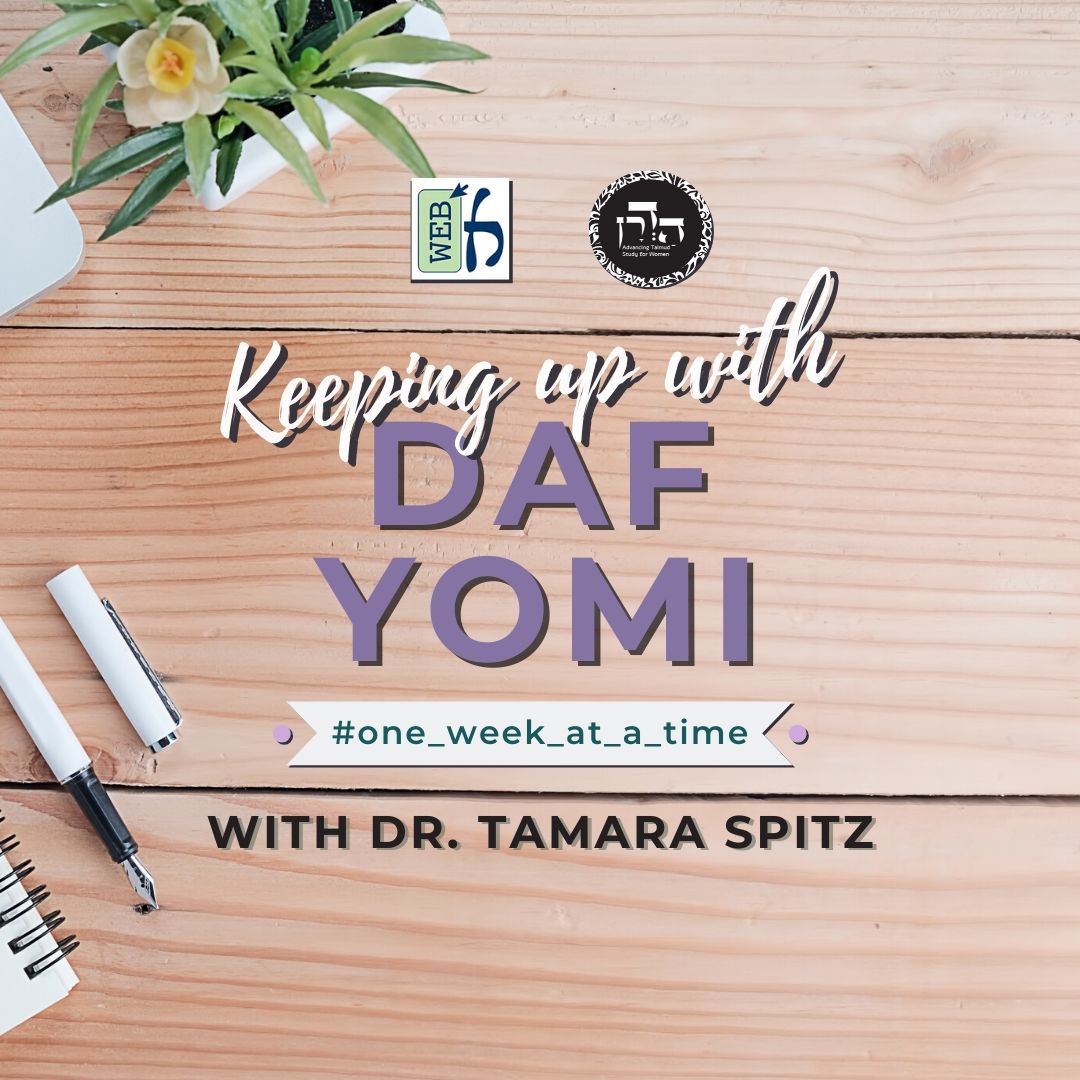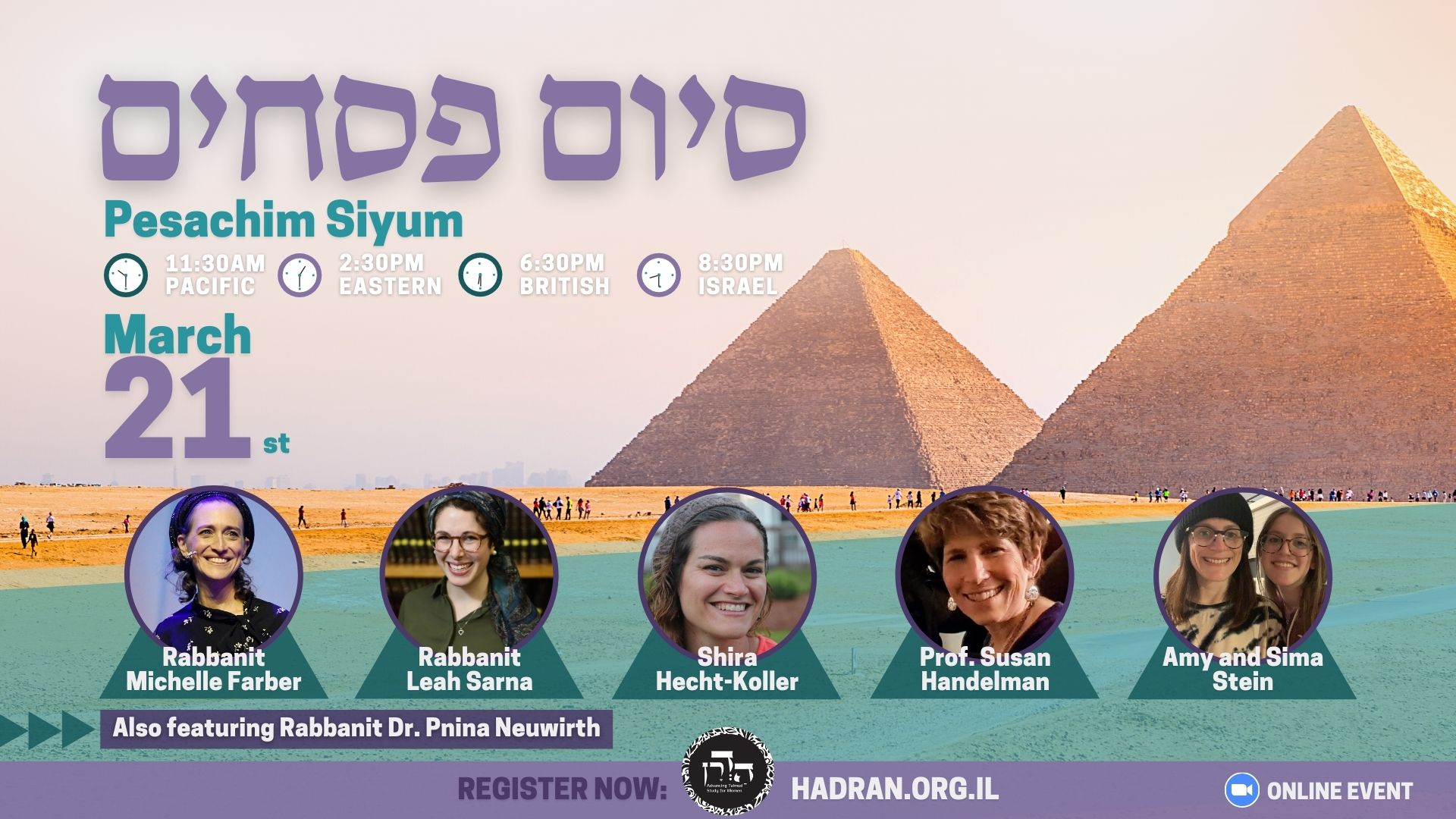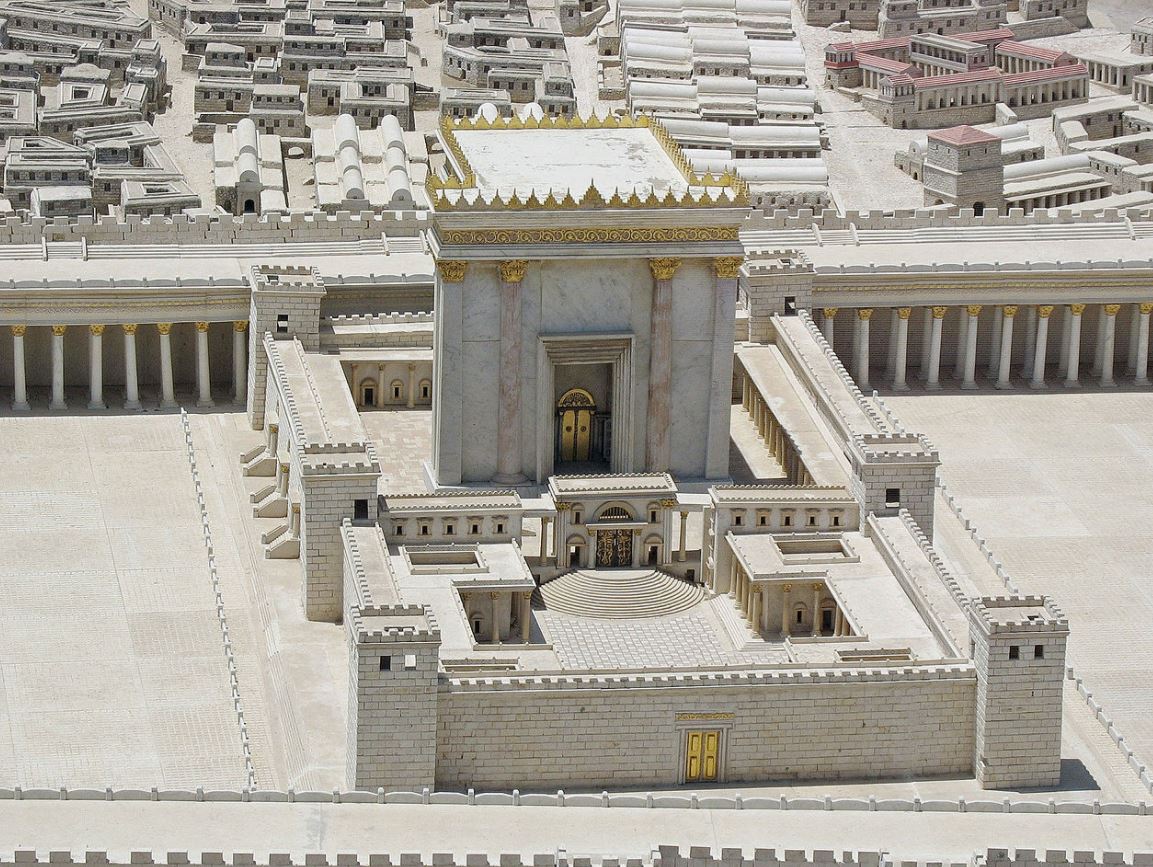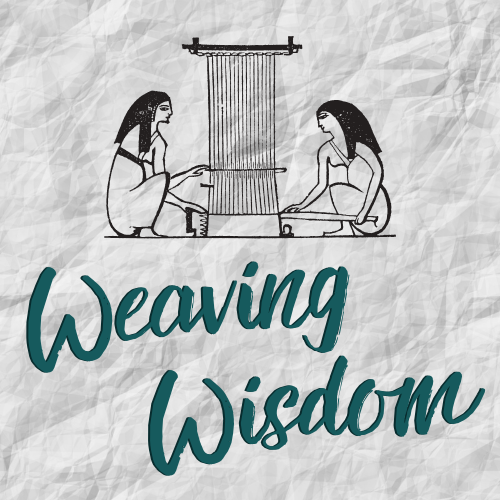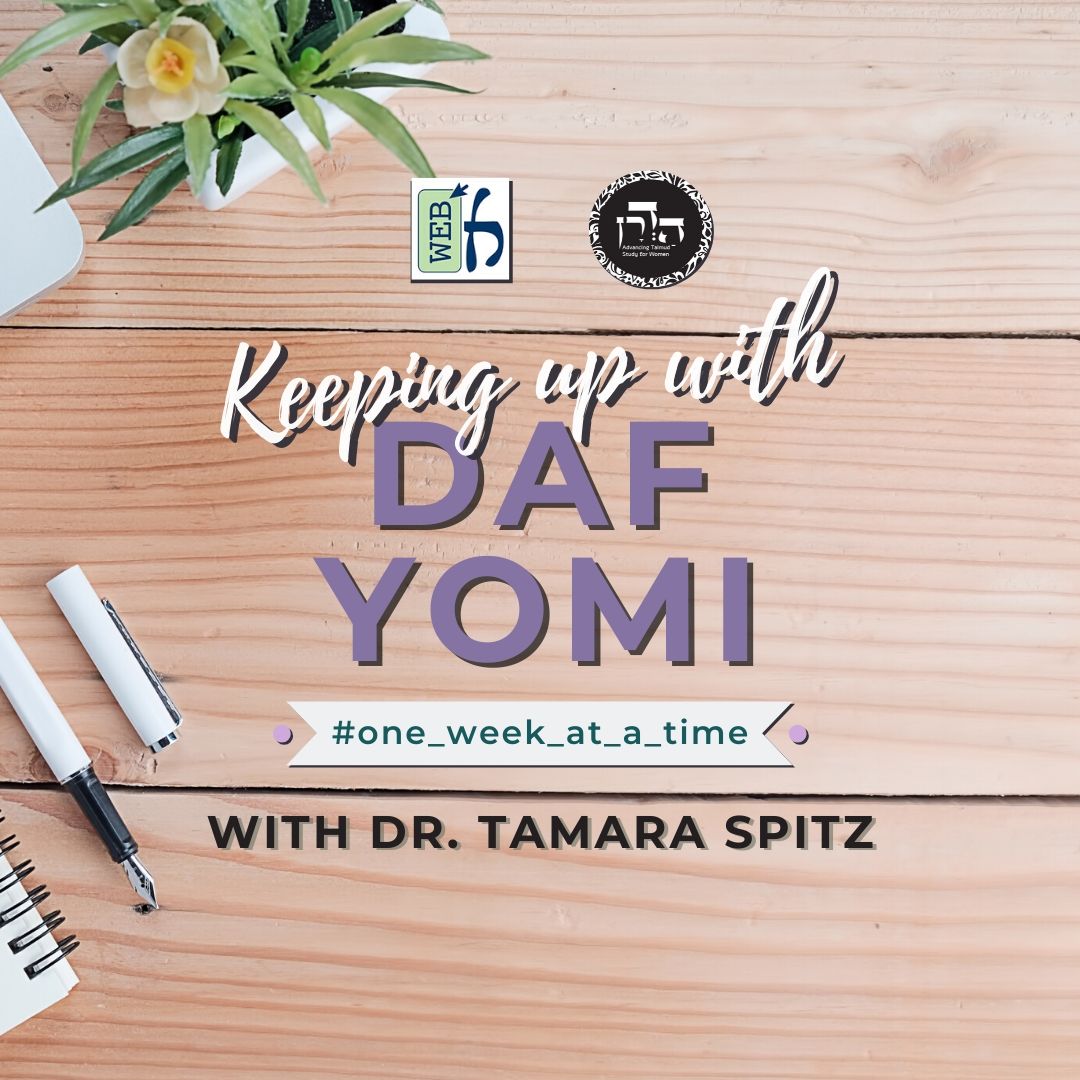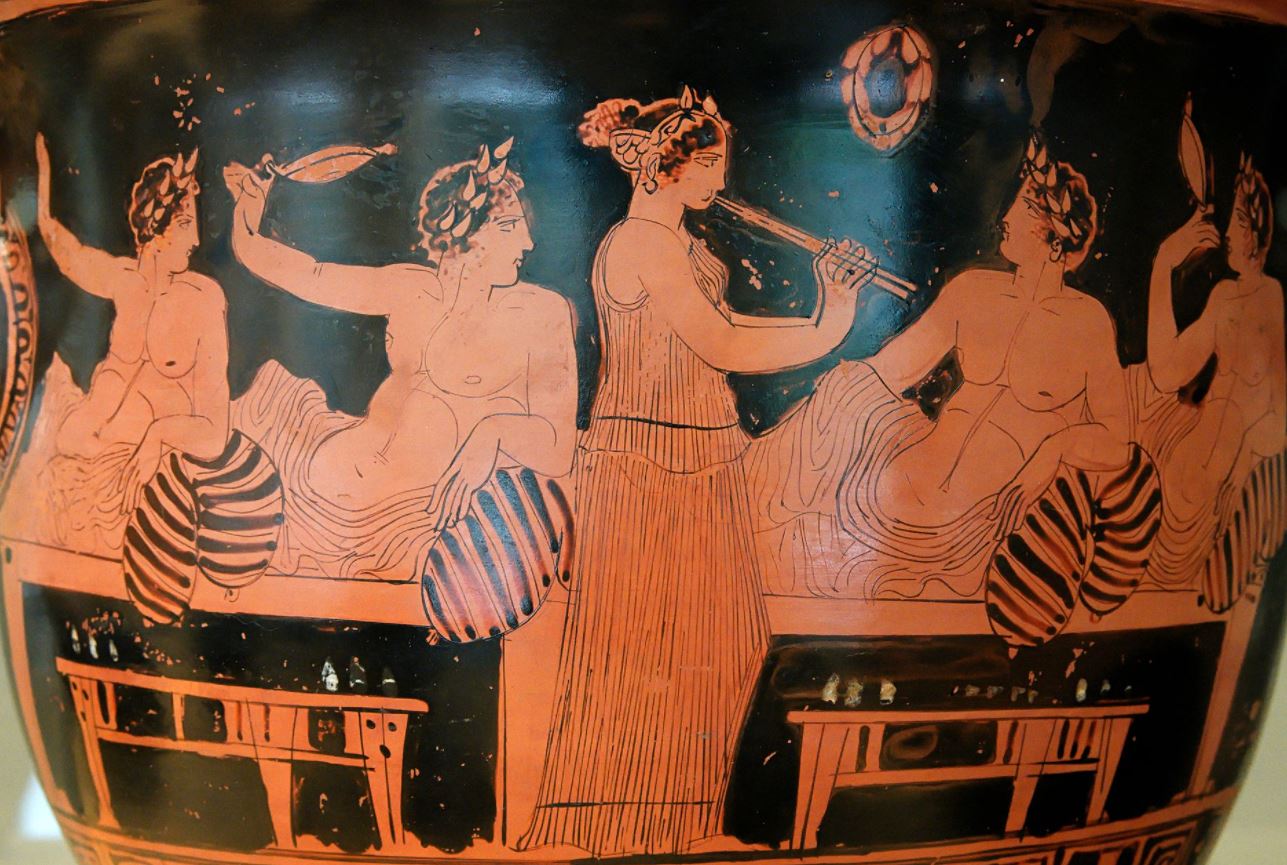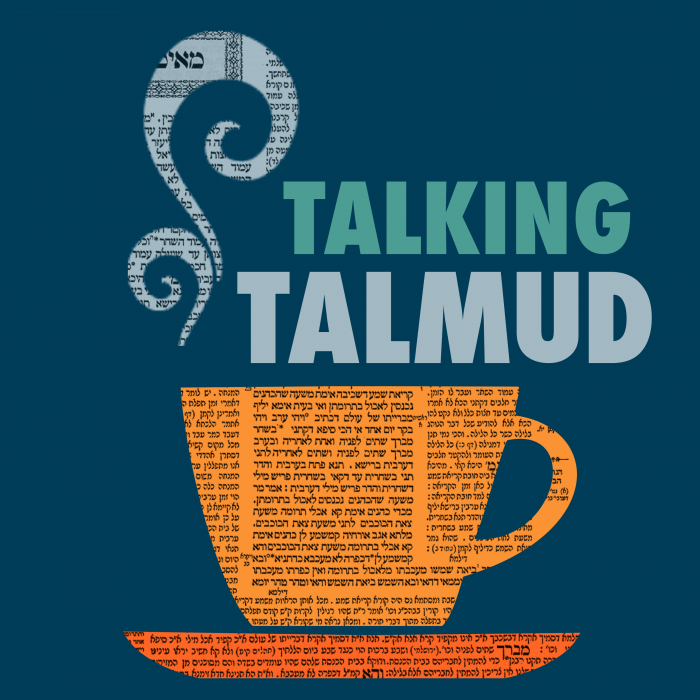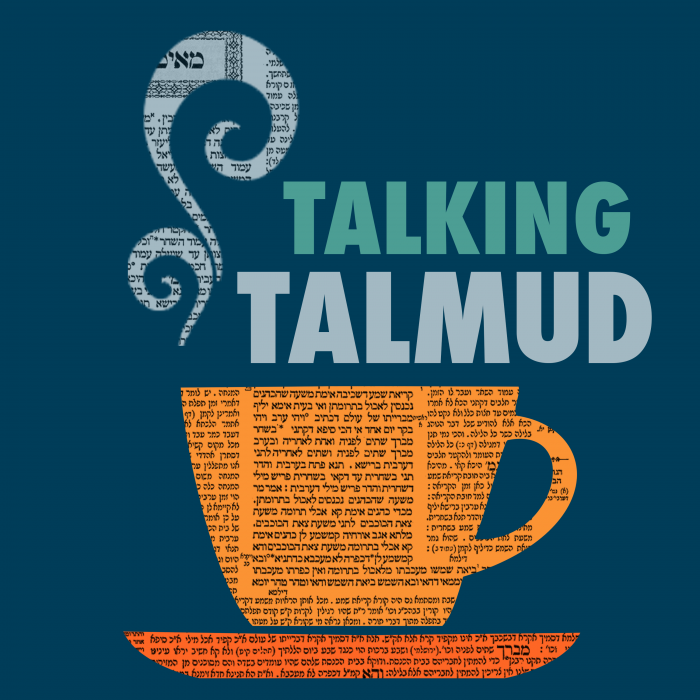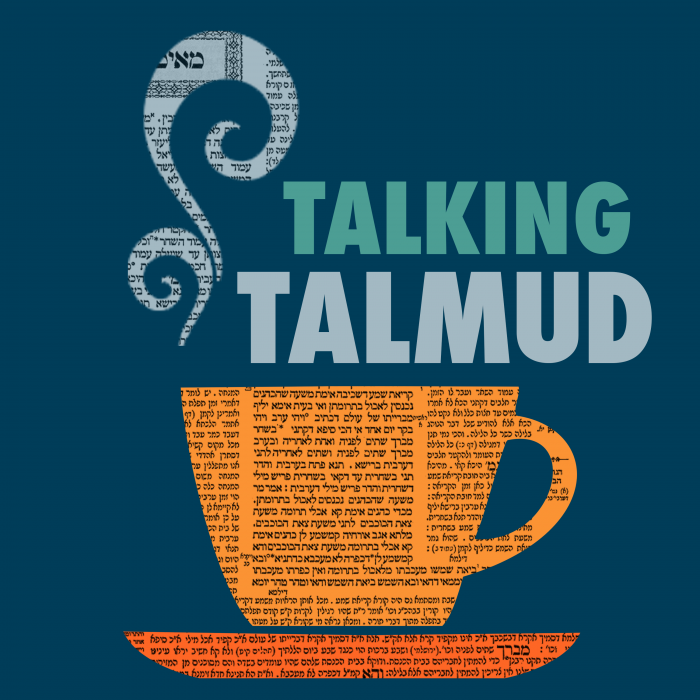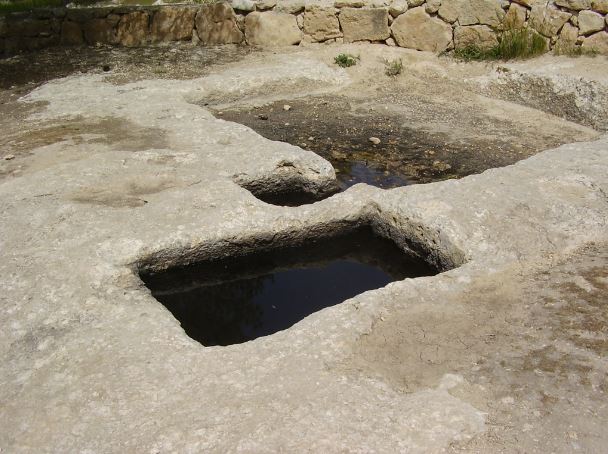Pesachim 38
מַצּוֹת שֶׁל מַעֲשֵׂר שֵׁנִי, לְדִבְרֵי רַבִּי מֵאִיר — אֵין אָדָם יוֹצֵא בָּהּ יְדֵי חוֹבָתוֹ בַּפֶּסַח, לְדִבְרֵי חֲכָמִים — יוֹצֵא בָּהּ יְדֵי חוֹבָתוֹ בַּפֶּסַח.
With regard to matzot of second-tithe produce: In accordance with the statement of Rabbi Meir, a person cannot fulfill his obligation to eat matza on the first night of Passover with this matza. Rabbi Meir considers it consecrated property, and one must eat matza that belongs to him, not consecrated property. In accordance with the statement of the Rabbis, one can fulfill his obligation with this type of matza on the first night of Passover.
אֶתְרוֹג שֶׁל מַעֲשֵׂר שֵׁנִי, לְדִבְרֵי רַבִּי מֵאִיר — אֵין יוֹצֵא בּוֹ יְדֵי חוֹבָתוֹ בְּיוֹם טוֹב, לְדִבְרֵי חֲכָמִים — אָדָם יוֹצֵא בּוֹ יְדֵי חוֹבָתוֹ בְּיוֹם טוֹב.
The same dispute applies to a citron of second-tithe produce: In accordance with the statement of Rabbi Meir, one cannot fulfill his obligation to take the four species on the first day of the festival of Sukkot with this citron. In accordance with the statement of the Rabbis, a person can use this citron to fulfill his obligation on the first day of the festival of Sukkot.
מַתְקֵיף לַהּ רַב פָּפָּא: בִּשְׁלָמָא עִיסָּה, דִּכְתִיב ״עֲרִיסֹתֵיכֶם״ — מִשֶּׁלָּכֶם.
Rav Pappa strongly objects to this statement: Granted, one must separate ḥalla from this dough, as it is written: “Of the first of your dough you shall give to the Lord a portion [ḥalla] for a gift throughout your generations” (Numbers 15:21). This verse can be read in a very precise manner, so that the expression “your dough” indicates that ḥalla is separated only from dough that belongs to you.
אֶתְרוֹג נָמֵי, דִּכְתִיב ״וּלְקַחְתֶּם לָכֶם״, ״לָכֶם״ — מִשֶּׁלָּכֶם יְהֵא. אֶלָּא מַצָּה, מִי כְּתִיב ״מַצַּתְכֶם״?
With regard to a citron too, a similar conclusion can be drawn, as it is written: “And you shall take for yourselves on the first day a fruit of goodly trees, branches of palm trees, and boughs of thick trees and willows of the brook” (Leviticus 23:40). Here too, the expression “for yourselves” indicates that what you take must belong to you. However, with regard to matza, is it written that you must use your own matza? Since there is no such requirement, it stands to reason that even consecrated matza is valid for this mitzva.
אָמַר רָבָא, וְאִיתֵּימָא רַב יֵימַר בַּר שֶׁלֶמְיָא: אָתְיָא ״לֶחֶם״ ״לֶחֶם״. כְּתִיב הָכָא ״לֶחֶם עֹנִי״, וּכְתִיב הָתָם ״וְהָיָה בַּאֲכׇלְכֶם מִלֶּחֶם הָאָרֶץ״. מָה לְהַלָּן — מִשֶּׁלָּכֶם, אַף כָּאן — מִשֶּׁלָּכֶם.
Rava said, and some say Rav Yeimar bar Shelamya said: This principle can be derived by means of a verbal analogy between “bread” and “bread.” It is written here, with regard to matza: “Poor man’s bread” (Deuteronomy 16:3), and it is written there, with regard to ḥalla: “And it shall be that when you eat of the bread of the land, you shall set apart a portion for a gift to the Lord” (Numbers 15:19). Just as there, in the case of ḥalla, it must be separated only from food that belongs to you, so too here, with regard to matza, it must be prepared only from produce that belongs to you.
לֵימָא מְסַיַּיע לֵיהּ: עִיסָּה שֶׁל מַעֲשֵׂר שֵׁנִי פְּטוּרָה מִן הַחַלָּה, דִּבְרֵי רַבִּי מֵאִיר. וַחֲכָמִים אוֹמְרִים: חַיֶּיבֶת. לֵימָא מְסַיַּיע?! הַיְינוּ הָךְ!
The Gemara suggests: Let us say that the following baraita supports Rav Asi: With regard to dough of second-tithe produce, one is exempt from separating ḥalla from it; this is the statement of Rabbi Meir. And the Rabbis say: One is obligated in this mitzva. Since this is a conclusive proof, the Gemara expresses surprise at the formulation: Let us say that it supports him. This statement is identical to that one; i.e., the ruling of the baraita is identical to Rav Asi’s opinion.
הָכִי קָאָמַר (לֵיהּ): לֵימָא מִדִּפְלִיגִי בְּעִיסָּה, בְּהָנָךְ נָמֵי פְּלִיגִי. אוֹ דִילְמָא, שָׁאנֵי הָתָם דִּכְתִיב ״עֲרִיסֹתֵיכֶם״ ״עֲרִיסֹתֵיכֶם״ תְּרֵי זִימְנֵי.
The Gemara explains: This is what the statement: Let us say, is saying: Let us say from the fact that they disagree with regard to dough, so too, they disagree with regard to these other issues. Or perhaps it is different there, with regard to ḥalla, as it is written: “Your dough,” “your dough,” twice. This repetition might indicate that the mitzva of ḥalla applies only to one who maintains full ownership of the dough. Although Rabbi Meir contends that one need not separate ḥalla from second-tithe produce, he does not necessarily issue a similar ruling with regard to matza or a citron, as there is no explicit proof to this effect.
בָּעֵי רַבִּי שִׁמְעוֹן בֶּן לָקִישׁ: מַהוּ שֶׁיֵּצֵא אָדָם יְדֵי חוֹבָתוֹ בְּחַלָּה שֶׁל מַעֲשֵׂר שֵׁנִי בִּירוּשָׁלַיִם? אַלִּיבָּא דְּרַבִּי יוֹסֵי הַגְּלִילִי — לָא תִּיבְּעֵי לָךְ, הַשְׁתָּא בְּחוּלִּין לָא נָפֵיק, בְּחַלָּתוֹ מִיבַּעְיָא?! כִּי תִּיבְּעֵי לָךְ אַלִּיבָּא דְּרַבִּי עֲקִיבָא.
Rabbi Shimon ben Lakish raised a dilemma: What is the halakha with regard to the possibility that a person can fulfill his obligation to eat matza with ḥalla separated from second-tithe dough in Jerusalem? The Gemara clarifies this dilemma: In accordance with the opinion of Rabbi Yosei HaGelili, do not raise this dilemma. Rabbi Yosei HaGelili maintains that one can fulfill his obligation to eat matza only with food that may be eaten in a state of acute mourning. The Gemara explains why the dilemma does not arise according to the opinion of Rabbi Yosei HaGelili: Now that it has been mentioned that one cannot fulfill his obligation with the non-sacred portion of second-tithe produce, i.e., with that which was not sanctified as ḥalla, is it necessary to mention that one cannot fulfill his obligation with its ḥalla? When you raise the dilemma, it is in accordance with the opinion of Rabbi Akiva.
בְּחוּלִּין הוּא דְּנָפֵיק — דְּאִי מִיטַּמּוּ יֵשׁ לָהֶן הֶיתֵּר בְּמוֹשָׁבוֹת. אֲבָל חַלָּה, דְּאִי מִטַּמְּיָא לֵית לַהּ הֶיתֵּר בְּמוֹשָׁבוֹת, וְלִשְׂרֵיפָה אָזְלָא — לָא נָפֵיק.
The Gemara explains: Unlike Rabbi Yosei, Rabbi Akiva does not interpret the phrase “poor man’s bread [leḥem oni]” as though it were written with an alef, which indicates that it is referring to the bread of acute mourning [aninut], i.e., the period of mourning on the day of the death of a close relative. Consequently, the following dilemma arises: It can be suggested that it is with the non-sacred portion of the second-tithe produce that one can fulfill his obligation, for if the produce becomes ritually impure it can be permitted to be eaten in any habitation in Israel after it has been redeemed. Rabbi Akiva agrees that any food that can be eaten in an unrestricted manner in certain circumstances can also be used for the obligation to eat matza. However, with regard to ḥalla, which, if it becomes ritually impure, cannot be permitted to be eaten in any habitation, but goes, i.e., it is slated for burning, this ḥalla cannot be used to fulfill one’s obligation.
אוֹ דִילְמָא: אָמְרִינַן הוֹאִיל וְאִילּוּ לֹא קָרָא עָלֶיהָ שֵׁם וְאִיטַּמַּי — אִית לָהּ הֶיתֵּר בְּמוֹשָׁבוֹת, וְנָפֵיק בָּהּ, הַשְׁתָּא נָמֵי נָפֵיק.
Or perhaps we say: Since, if one had not designated the produce as ḥalla and it had become ritually impure, it could be redeemed and be permitted to be eaten in any habitation, and one could fulfill the obligation of matza with it, now too, one can fulfill his obligation with it, despite the fact that it has been designated as ḥalla. Since the sanctity is not inherent in the dough itself, it does not undermine its status as fit for matza.
אִיכָּא דְאָמְרִי: הָא וַדַּאי לָא תִּיבְּעֵי לָךְ, דְּוַדַּאי אָמְרִינַן ״הוֹאִיל״. כִּי תִּיבְּעֵי לָךְ חַלָּה הַלָּקוּחַ בְּכֶסֶף מַעֲשֵׂר שֵׁנִי.
Some say a different version of this analysis: With regard to this case, certainly do not raise the dilemma, as here we certainly apply the principle of: Since, as stated above. In other words, there is no doubt that ḥalla taken from second-tithe produce can be used for matza, as its sanctity is not inherent. Rather, when you raise the dilemma, it is with regard to ḥalla that was purchased with second-tithe money, as this type of food can be ritually purified if it becomes ritually impure.
וְאַלִּיבָּא דְרַבָּנַן לָא תִּיבְּעֵי לָךְ, כֵּיוָן דְּאָמְרִי יִפָּדֶה — הַיְינוּ מַעֲשֵׂר. כִּי תִּיבְּעֵי לָךְ, אַלִּיבָּא דְּרַבִּי יְהוּדָה, דְּאָמַר — יִקָּבֵר.
And furthermore, in accordance with the opinion of the Rabbis, do not raise this dilemma, since they say that it can be redeemed for a second time; this case is identical to the case of second-tithe produce itself. In this regard, the Rabbis do not distinguish between the money with which the second tithe was redeemed and the second-tithe produce itself. Rather, when you raise the dilemma, it is in accordance with the opinion of Rabbi Yehuda, who said that an object that was purchased with second-tithe money and that became ritually impure must be buried.
דִּתְנַן: הַלָּקוּחַ בְּכֶסֶף מַעֲשֵׂר שֵׁנִי שֶׁנִּטְמָא — יִפָּדֶה. רַבִּי יְהוּדָה אוֹמֵר: יִקָּבֵר.
As we learned in a mishna with regard to food that was purchased with second-tithe money that became ritually impure, this ritually impure food should be redeemed for money, with which one must purchase other food. Rabbi Yehuda says: It should be buried. Since this food was merely purchased with second-tithe money, it does not have the same degree of sanctity as the tithe itself. Therefore, its status as a second-tithe object cannot be transferred to yet a third object. Consequently, if it becomes impure, it cannot be redeemed for money but must be buried as an item for which there is no use.
מִי אָמְרִינַן: הוֹאִיל וְאִי לָא לָקוּחַ הָוֵי, וְהוֹאִיל וְלֹא קָרָא עָלֶיהָ שֵׁם וְאִיטַּמַּי — יֵשׁ לוֹ הֶיתֵּר בְּמוֹשָׁבוֹת, וְנָפֵיק בֵּיהּ, הַשְׁתָּא נָמֵי נָפֵיק בֵּיהּ.
The Gemara clarifies the aforementioned dilemma: Do we say the following: Since, if it were not purchased with second-tithe money, and furthermore, since, if one had not designated it as ḥalla and it became ritually impure, this produce would be permitted to be eaten in any habitation, one can therefore fulfill his obligation with it even after its status has changed by being purchased with second-tithe money and designated as ḥalla?
אוֹ דִילְמָא: חַד ״הוֹאִיל״ אָמְרִינַן, תְּרֵי ״הוֹאִיל״ לָא אָמְרִינַן? אָמַר רָבָא: מִסְתַּבְּרָא שֵׁם מַעֲשֵׂר חַד הוּא.
Or perhaps we say one of these logical arguments starting with: Since, but we do not say two arguments of: Since. If so, one cannot fulfill his obligation with matza of ḥalla separated from second tithe. Rava said: It stands to reason that the category of tithe is a single designation. In other words, provided that the food is included in the general framework of second tithe, it can be used for matza, and this applies even to the ḥalla separated from second tithe.
חַלַּת תּוֹדָה וּרְקִיקֵי נָזִיר וְכוּ׳. מְנָא הָנֵי מִילֵּי? אָמַר רַבָּה: דְּאָמַר קְרָא
We learned in the mishna that if one prepared the loaves of a thanks-offering or a nazirite’s wafers for himself, he cannot use them to fulfill his obligation to eat matza on Passover. The Gemara asks: From where are these matters derived? Rabba said: As the verse states:
״וּשְׁמַרְתֶּם אֶת הַמַּצּוֹת״ — מַצָּה הַמִּשְׁתַּמֶּרֶת לְשֵׁם מַצָּה. יָצְתָה זוֹ שֶׁאֵין מִשְׁתַּמֶּרֶת לְשֵׁם מַצָּה, אֶלָּא לְשׁוּם זֶבַח.
“And you shall guard the matzot” (Exodus 12:17). This verse teaches that one may use only matza that has been guarded from becoming leavened for the purpose of matza, i.e., with the intention of fulfilling one’s obligation of matza with it. This explanation excludes this matza, which was prepared for a nazirite or a thanks-offering and which was not guarded for the purpose of matza but for the purpose of a sacrifice.
רַב יוֹסֵף אָמַר, אָמַר קְרָא: ״שִׁבְעַת יָמִים מַצּוֹת תֹּאכֵלוּ״ — מַצָּה הַנֶּאֱכֶלֶת לְשִׁבְעַת יָמִים. יָצְתָה זוֹ שֶׁאֵינָהּ נֶאֱכֶלֶת לְשִׁבְעַת יָמִים, אֶלָּא לְיוֹם וָלַיְלָה.
Rav Yosef said a different reason: One may not use matza prepared for a nazirite or a thanks-offering because the verse states: “Seven days you shall eat matzot” (Exodus 12:15), which indicates that one can fulfill his obligation only with matza that can be eaten for all seven days. This requirement excludes this matza, which is of nazirite’s wafers or the loaves of a thanks-offering and which cannot be eaten for seven days, but only for one day and one night.
תַּנְיָא כְּווֹתֵיהּ דְּרַבָּה, וְתַנְיָא כְּווֹתֵיהּ דְּרַב יוֹסֵף. תַּנְיָא כְּווֹתֵיהּ דְּרַבָּה: יָכוֹל יֵצֵא יְדֵי חוֹבָתוֹ בְּחַלּוֹת תּוֹדָה וּרְקִיקֵי נָזִיר, תַּלְמוּד לוֹמַר: ״וּשְׁמַרְתֶּם אֶת הַמַּצּוֹת״ — מַצָּה הַמִּשְׁתַּמֶּרֶת לְשֵׁם מַצָּה. יָצְתָה זוֹ שֶׁאֵינָהּ מִשְׁתַּמֶּרֶת לְשֵׁם מַצָּה, אֶלָּא לְשׁוּם זֶבַח.
The Gemara comments: It was taught in a baraita in accordance with the opinion of Rabba, and it was taught in a baraita in accordance with the opinion of Rav Yosef. The Gemara elaborates: It was taught in a baraita in accordance with the opinion of Rabba: I might have thought that one can fulfill his obligation to eat matza with the loaves of a thanks-offering or a nazirite’s wafers; therefore, the verse states: “And you shall guard the matzot,” indicating that one must use matza that has been guarded from becoming leavened for the purpose of matza on Passover. This requirement excludes this matza, which was not guarded for the purpose of matza but for the purpose of a sacrifice.
תַּנְיָא כְּווֹתֵיהּ דְּרַב יוֹסֵף: יָכוֹל יֵצֵא אָדָם יְדֵי חוֹבָתוֹ בְּחַלּוֹת תּוֹדָה וּרְקִיקֵי נָזִיר, תַּלְמוּד לוֹמַר: ״שִׁבְעַת יָמִים מַצּוֹת תֹּאכֵלוּ״ — מַצָּה הַנֶּאֱכֶלֶת לְשִׁבְעָה. יָצְתָה זוֹ שֶׁאֵינָהּ נֶאֱכֶלֶת לְשִׁבְעָה, אֶלָּא לְיוֹם וָלַיְלָה.
It was taught in a baraita in accordance with the opinion of Rav Yosef: I might have thought that a person can fulfill his obligation to eat matza with the loaves of a thanks-offering or a nazirite’s wafers; therefore, the verse states: “Seven days you shall eat matzot,” from which it is inferred that one must fulfill this obligation with matza that can be eaten for all seven days. This requirement excludes this matza, as it cannot be eaten for seven days but only for a day and a night.
וְתִיפּוֹק לֵיהּ מִ״לֶּחֶם עֹנִי״ — מִי שֶׁנֶּאֱכָל בַּאֲנִינוּת. יָצָא זֶה שֶׁאֵינוֹ נֶאֱכָל בַּאֲנִינוּת, אֶלָּא בְּשִׂמְחָה!
The Gemara asks a question of both opinions: And let him derive this halakha, that one cannot fulfill his obligation to eat matza with the loaves of a thanks-offering or a nazirite’s wafers, from the phrase “bread of affliction [leḥem oni]” (Deuteronomy 16:3). According to Rabbi Yosei HaGelili, this phrase means: One can fulfill his obligation to eat matza only with food that may be eaten in a state of acute mourning. This requirement excludes this matza, i.e., the loaves of the thanks-offering and the nazirite wafers, which is not eaten in a state of acute mourning but in a state of joy, as an acute mourner is prohibited from eating sacrificial foods.
סָבַר לַהּ כְּרַבִּי עֲקִיבָא, דְּאָמַר ״עָנִי״ כְּתִיב.
The Gemara answers: Rabba and Rav Yosef both maintain in accordance with the opinion of Rabbi Akiva, who said that since oni, meaning poverty, is written, the matza must be bread of poverty. According to Rabbi Akiva, this phrase does not teach the halakha pertaining to consumption by acute mourners.
וְתִיפּוֹק לֵיהּ דְּהָוֵה לֵיהּ מַצָּה עֲשִׁירָה!
The Gemara asks another question: And let him derive this halakha, that one cannot fulfill his obligation to eat matza with the loaves of a thanks-offering or a nazirite’s wafers, from the fact that it is matza ashira, enhanced matza, as both the loaves of the thanks-offering and the nazirite’s wafers contain oil. Matza that contains ingredients besides flour and water is classified as matza ashira and cannot be used for the mitzva of eating matza on the first night of Passover.
אָמַר שְׁמוּאֵל בַּר רַב יִצְחָק: רְבִיעִית הִיא, וּמִתְחַלֶּקֶת הִיא לְכַמָּה חַלּוֹת.
Shmuel bar Rav Yitzḥak said: This is an incorrect definition, as the total amount of oil in these loaves or wafers is only a quarter–log, and as this small amount of oil is divided between several loaves, it is nullified in the mixture. Consequently, the loaves of the thanks-offering and the nazirite’s wafers are not matza ashira.
וְתִיפּוֹק לֵיהּ דְּאֵינָן נֶאֱכָלוֹת בְּכׇל מוֹשָׁבוֹת!
The Gemara again asks: And let him derive this halakha, that one cannot fulfill his obligation to eat matza with the loaves of a thanks-offering or a nazirite’s wafers from that fact that these types of bread cannot be eaten in every habitation. It was previously stated that the obligation to eat matza can be fulfilled only with food that can be eaten anywhere in Israel, whereas offerings may be eaten only in Jerusalem.
אָמַר רֵישׁ לָקִישׁ: זֹאת אוֹמֶרֶת חַלּוֹת תּוֹדָה וּרְקִיקֵי נָזִיר נֶאֱכָלִין בְּנוֹב וְגִבְעוֹן.
Reish Lakish said: That is to say, the loaves of the thanks-offering and the nazirite’s wafers may be eaten in Nov and Givon. In other words, the omission of this reason indicates that offerings could have been sacrificed on the communal altars during the period when improvised altars were permitted, before the Temple was built. These offerings are not among those that can be sacrificed only: “In the place that the Lord shall choose” (Deuteronomy 12:5). This means that during that period the loaves of the thanks-offering and the nazirite’s wafers could indeed have been eaten anywhere, as improvised altars were built in any place. Consequently, even after the Temple was built, the loaves of the thanks-offering and the nazirite’s wafers are still considered fit to be eaten anywhere in Israel.
תַּנְיָא, אָמַר רַבִּי אִילְעַאי: שָׁאַלְתִּי אֶת רַבִּי אֱלִיעֶזֶר — מַהוּ שֶׁיֵּצֵא אָדָם בְּחַלּוֹת תּוֹדָה וּרְקִיקֵי נָזִיר? אָמַר לִי: לֹא שָׁמַעְתִּי. בָּאתִי וְשָׁאַלְתִּי לִפְנֵי רַבִּי יְהוֹשֻׁעַ, אָמַר לִי: הֲרֵי אָמְרוּ, חַלּוֹת תּוֹדָה וּרְקִיקֵי נָזִיר שֶׁעֲשָׂאָן לְעַצְמוֹ — אֵין אָדָם יוֹצֵא בָּהֶן, לִמְכּוֹר בַּשּׁוּק — יוֹצֵא בָּהֶן.
It was taught in a baraita that Rabbi Ilai said: I asked Rabbi Eliezer ben Hyrcanus: What is the halakha with regard to the possibility that a person can fulfill the obligation to eat matza with the loaves of a thanks-offering or a nazirite’s wafers? He said to me: I did not hear anything about this issue. I went and asked Rabbi Yehoshua, who said to me: They said, concerning loaves for a thanks-offering or a nazirite’s wafers that one prepared for his own offering, that a person cannot fulfill his obligation with them. However, if one baked them to sell in the market, he can fulfill his obligation with them.
כְּשֶׁבָּאתִי וְהִרְצֵיתִי דְּבָרִים לִפְנֵי רַבִּי אֱלִיעֶזֶר, אָמַר לִי: בְּרִית! הֵן הֵן הַדְּבָרִים שֶׁנֶּאֶמְרוּ לוֹ לְמֹשֶׁה בְּסִינַי. אִיכָּא דְּאָמְרִי: בְּרִית, הֵן הֵן הַדְּבָרִים שֶׁנֶּאֶמְרוּ לוֹ לְמֹשֶׁה בְּסִינַי? וְלָא טַעְמָא בָּעֲיָא?!
When I returned and recited these matters to Rabbi Eliezer, he said to me in excitement: By the covenant, these are the very matters that were stated to Moses on Mount Sinai. Rabbi Eliezer swore that this halakha had been transmitted over the generations going back to Moses on Mount Sinai. Some say he spoke in astonishment: By the covenant! Are these in fact the matters that were stated to Moses on Mount Sinai? And doesn’t this halakha require a reason? Since there is no explicit tradition in this regard, it is necessary to provide a reason for this distinction.
וְטַעְמָא מַאי? אָמַר רַבָּה: כֹּל לַשּׁוּק אִימְּלוֹכֵי מִימְּלֵךְ. אָמַר: אִי מִזְדַּבַּן — מִזְדַּבַּן, אִי לָא מִזְדַּבַּן — אִיפּוֹק בְּהוּ אֲנָא.
The Gemara asks: And indeed, what is the reason for this distinction between these loaves one prepared for himself and those he intended to sell in the market? Rabba said: With regard to anything sold in the market, the merchant may change his mind about it. He might say: If it is sold, it is sold; but if it is not sold for an offering, I will fulfill my obligation to eat matza with it. Since the merchant had in mind from the outset that these matzot might be used for the mitzva on Passover, he is permitted to use them to fulfill his obligation.



